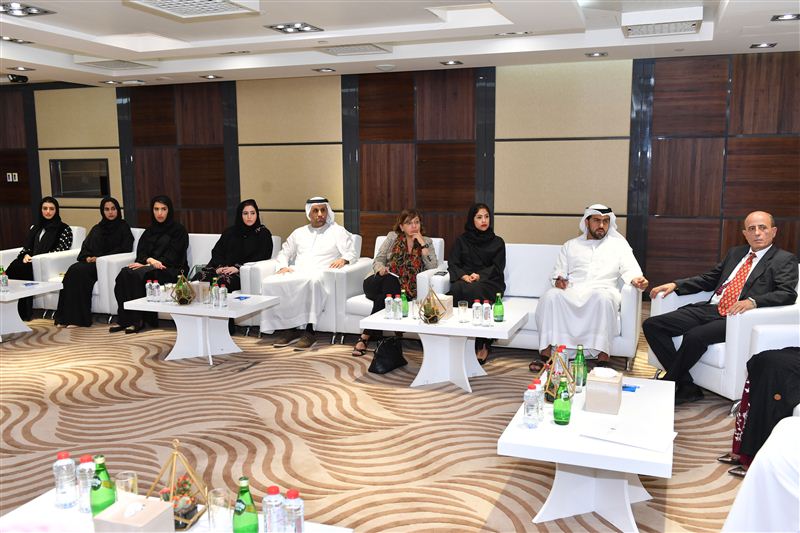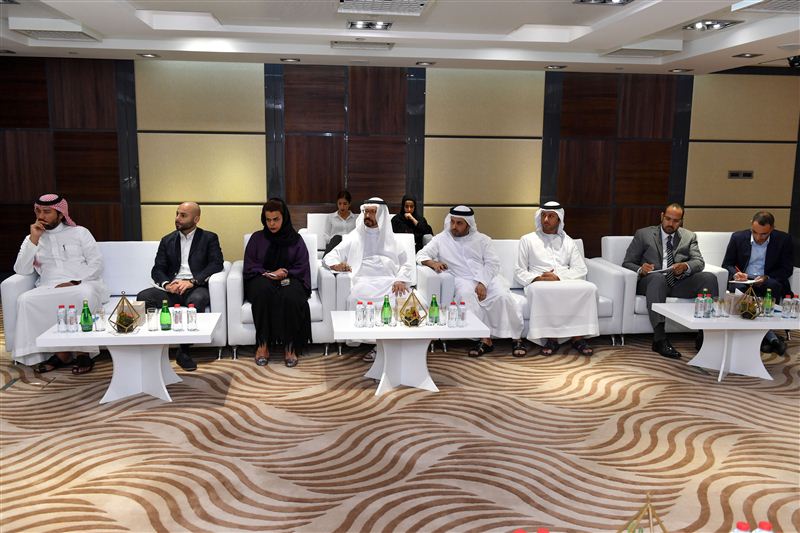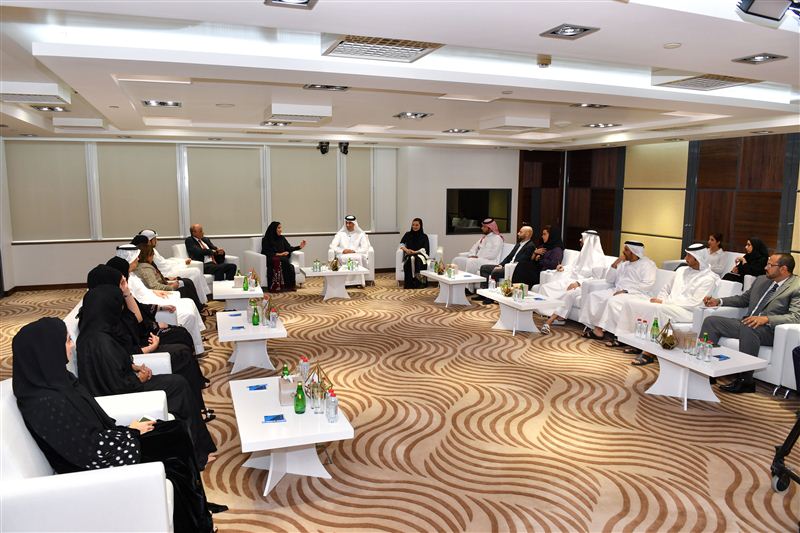- City Fajr Shuruq Duhr Asr Magrib Isha
- Dubai 05:07 06:22 12:05 15:16 17:42 18:57

The UAE is working on developing a comprehensive strategy to tackle climate and environmental changes, with the aim of protecting natural resources, and reduce negative impact on various economic sectors through developing a sustainable infrastructure based on clean energy, according to Dr. Thani Al Zeyoudi, Minister of Climate Change and Environment.
Dr. Al Zeyoudi said that the UAE will mark National Environment Day under the theme "sustainably in production and consumption" on February 4, adding that the food bank initiative launched by Vice President and Prime Minister of the UAE and Ruler of Dubai His Highness Sheikh Mohammed bin Rashid Al Maktoum, is a major step in rationalizing food consumption and reduce food waste, adding that food waste in the GCC region is one of the highest in the world at 60-70% compared to an average of 30% worldwide.

Dr. Al Zeyoudi was speaking at ‘Meet the CEO’ event organised by the Government of Dubai Media Office (GDMO). The event was attended by Director General of the Government of Dubai Media Office Mona Ghanem Al Marri and representatives of a number of local, regional and international media.
The Minister said that UAE has the capability to successfully address the climate changes and preserve the environment, adding that the Ministry’s job is to address the most pressing issue of our generation in a way that makes economic sense, and to protect the most important components of our cultural heritage. To achieve this, the ministry has laid the groundwork for comprehensive and ambitious action on climate change and the environment this region has ever witnessed.

Dr. Al Zeyoudi also referred to the UAE’s experience in adopting the notion of green economy, where he referred to the clean energy projects and initiatives currently being executed by Abu Dhabi Future Energy Company (Masdar) and Dubai Water and Electricity Authority (DEWA), that helped in increasing the contribution of clean energy to the total energy mix.
He also said that by 2021, 4 nuclear power plants will start operation, which will cover huge part of the UAE’s energy needs. Speaking about preserving water resources, Dr. Thani said that the UAE has 141 dams, adding that the government is currently developing 96 dams, and issued legislations that aim to reduce water resources depletion.

At the heart of this will be the UAE National Climate Change Plan, Dr. Al Zeyoudi said. He also said that the UAE already has an impressive track record of having strong partnerships among public and private sector players to position industry and the overall economy for growth and less carbon emissions.
He also said that the UAE led the region in deploying clean energy, with pioneering projects and policies in renewable and nuclear energy, energy and water efficiency and carbon sequestration. We have deployed energy-saving infrastructure, from green buildings to world-class public transportation systems.
Dr. Al Zeyoudi also said that The UAE National Climate Plan will build on these important initiatives and further the conviction that climate action can go hand in hand with continued economic growth. The Plan, being developed in close consultation with public and private sectors, is poised to advance the UAE’s ambitious agenda of diversifying its economy into new, knowledge-based industries. He also said that the priority now is to reduce emissions, while creating more jobs, more growth, and higher levels of awareness.
Globally, Dr. Al Zeyoudi said that the ministry is working harder than ever to develop meaningful and result-oriented solutions. He also said that the UAE was the first country in the region to formally join the Paris Agreement: the world’s first truly global and durable response to climate change. The premise of the Paris Agreement is that each country can determine its own responses to climate change, in accordance with its own economic and development priorities.
For the UAE, this means finding solutions that bring together government and the wider public to create new economic and social opportunities.
![]() Follow Emirates 24|7 on Google News.
Follow Emirates 24|7 on Google News.